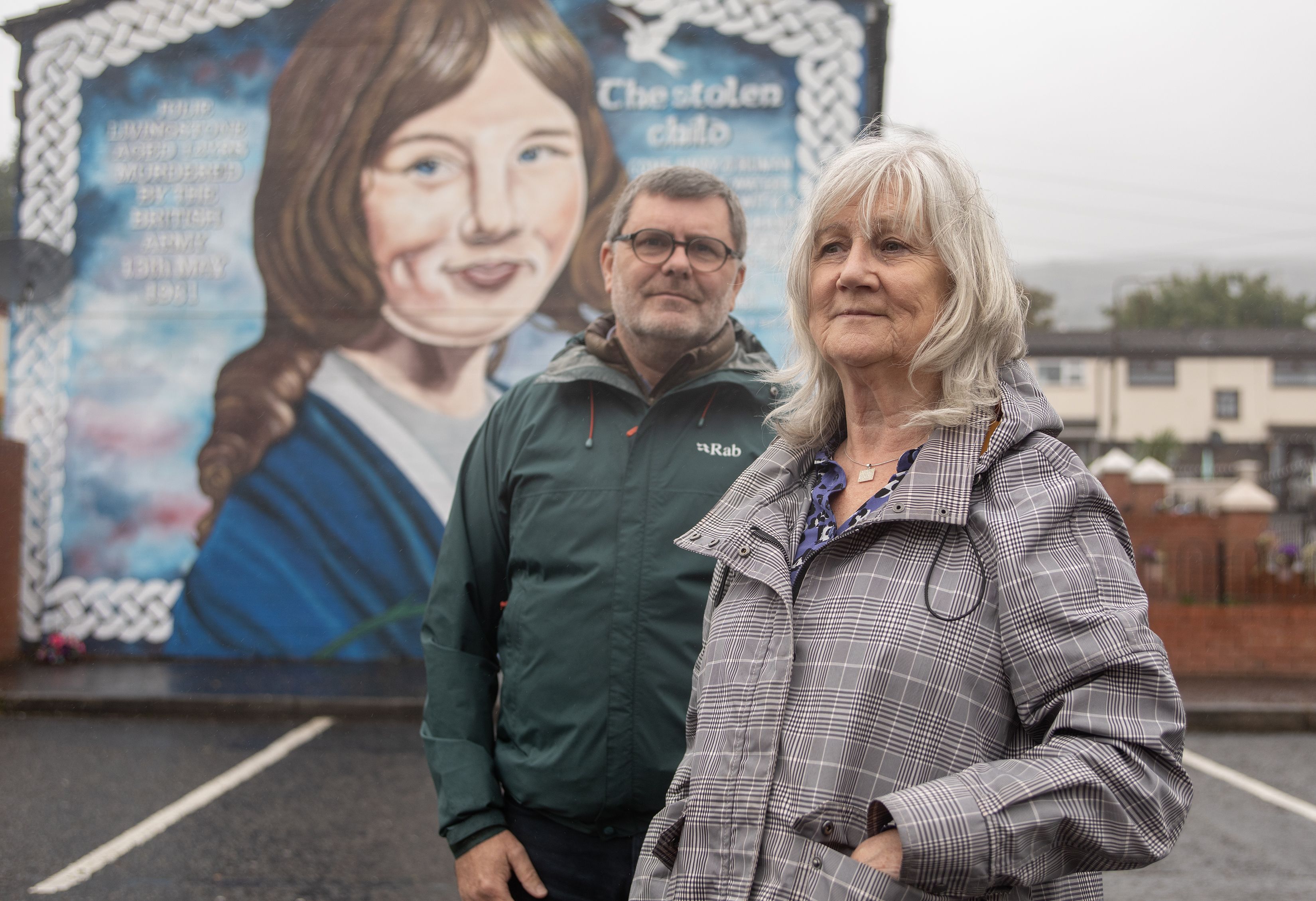THE sister of a West Belfast schoolgirl killed by the British Army in 1981 fears the family will never get access to a hidden file on her death.
Julie Livingstone from Lenadoon was returning from a local shop on the Stewartstown Road when she was fatally injured by a plastic bullet on 12, May 1981. The round, which was fired from a British Army vehicle, struck her on the head and she died the next day.
In 2019, researchers at the Pat Finucane Centre in Derry revealed that files held at the National Archives in Kew, London, relating to Julie’s death are to be kept closed until 2064.
A file relating to 15-year-old Paul Whitters, who died on April 25, 1981, ten days after being struck in the head with a plastic bullet fired by the RUC in Derry, had been marked closed until 2059. In June 2022, the Northern Ireland Office (NIO) released further information to the Whitters family.
Earlier this year, Julie's sister, Elizabeth wrote to Secretary of State Chris Heaton-Harris, urging him to release Julie's file to the family. In response, Mr Heaton-Harris stated that the file had been transferred to the National Archives in 2014 and no longer held by NIO.
He said that the file related to Julie was closed on the basis it contains information which "might put a person's health, safety or life at risk" and that "public authorities may also withhold personal information relating to living individuals".
Despite this, he said he would do his "utmost to ensure as much material from this file can be released as possible within the law".
After agreeing to forward her request to the National Archives, Elizabeth has submitted an FOI request in relation to Julie's file. Elizabeth has now been given a date of September 18 to find out if her request is successful whilst the National Archives conduct a "public interest test". Despite her efforts, Elizabeth fears that the family may never get access to the file on Julie's death.
"By 2064, anyone that ever knew Julie will have passed on themselves," she explained. "We don’t want to be leaving this to another generation. As a family, we feel like we will never get access to this file.
"The file was with the NIO from 1981 to 2014 before it was sent to London. We only found out about it five years later after a researcher came across it.
"The British Government are not being transparent with our family. It is sadly not surprising. We all feel re-traumatised by it all.
"Our message is simple – give us the file. We are not letting this drop."
Mark Thompson, from Relatives for Justice (RFJ) is assisting the family with their quest for the file.
"Paul Withers' file was released under Brandon Lewis. There is a legitimate expectation that Julie’s would be released too," he said. "We have submitted an FOI to the National Archives and this is where we are now.
"We don’t know what is in the file and do not want to speculate. What we do know is that the guns used to discharge plastic bullets were faulty. There is no place for plastic bullets in this society. They should be gone."
Julie's file locked away longer than Prince Andrew's – what is Britain hiding?https://t.co/egfIlZmz3I
— Andersonstown News (@ATownNews) September 7, 2023
Mark has questioned why the file of a 14-year-old schoolgirl should be hidden away and kept a secret from the family.
"What is in the context of a 14-year-old child shot without absolutely no justification whatsoever that may be so important that it is hidden away," he added. "There is no covert operation involving informers or anything like that.
"Is it embarrassment? The whole thing is despicable. The locking away of this file is causing further hurt, anguish and is prolonging the trauma for Julie’s family.
"In my opinion, it constitutes a form of torture.
"Is the British government deliberately running a clock down to try and get their controversial legacy bill over the line? If there is information in the file which could lead to a re-investigation or a new inquest, the legacy bill would shut that down.
"The family have a right to truth to access the information. If this file isn’t forthcoming, I think the family should seek legal action."








